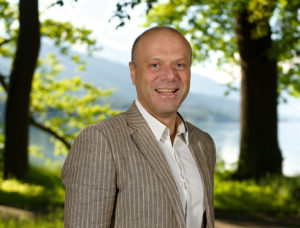 The human rights movement is facing difficult times. In these circumstances, human rights funders have a particularly important role to play in sustaining the fight. Adrian Arena of Oak Foundation is now a veteran in the human rights field, having played an instrumental role in building one of the world’s most significant human rights programmes. He talks to Alliance guest editor, Julie Broome, and Charles Keidan about the foundation’s work supporting those on the frontline.
The human rights movement is facing difficult times. In these circumstances, human rights funders have a particularly important role to play in sustaining the fight. Adrian Arena of Oak Foundation is now a veteran in the human rights field, having played an instrumental role in building one of the world’s most significant human rights programmes. He talks to Alliance guest editor, Julie Broome, and Charles Keidan about the foundation’s work supporting those on the frontline.
The long haul for human rights
JB: You’ve been leading the human rights programme at Oak for 15 years. How has it developed in that time?
It’s been my role to implement the trustees’ vision, to explore new human rights challenges and ensure their comfort with the issues we are pursuing. Over time their appetite for more complex issues has grown. That has meant their ambitions have also grown. They went from a safe place of supporting international not-for-profit organisations to looking at a broad range of issues pursued by diverse organisations in different countries. And that has been hugely challenging for us all, but also very rewarding. It is what has given the job its continued interest.
JB: Obviously the context today is very different from 15 years ago – we have rising populism, far right parties in government, threats to democracy and so on. How is Oak responding?
It’s an evolving process and we’re very keen to learn as we go. There are a few things though that have become really apparent.
It may be true that we previously didn’t give sufficient weight to equality arguments, but to somehow make human rights responsible for structural imbalances in the economy completely overstates our role and our influence.
First, there is still a role for traditional human rights actors who document, investigate, denounce and advocate. But they are part of a broader ecosystem where there are many different actors who mobilise different constituencies, deploy different tools and use different language to promote social justice. So the toolbox is now much bigger and our use of that toolbox has also grown.
Secondly our appetite for challenge has grown. We operate in countries where there are very serious human rights abuses and this was not where we started. This is relevant also for where we live and our immediate region. Exploring programming limits is important but also accomplished through trial and error. We have a good understanding between staff and the board as to how far to push the envelope. We all understand, however, that the decision is the trustees’.
JB: One of the things that I hear from more progressive donors is that we need to learn from the tactics of the right. Would you agree?
Yes, although some of that is overstated. I’m not entirely sure that those ‘lessons’ are clearly drawn or even part of a deliberate plan. It is, however, important to take a long-term view, provide core support. Some organisations’ skills in these areas have to be upgraded – in terms of messaging, outreach and investment in necessary infrastructure – and this may even include outsourcing services to permit reaching new constituencies, especially on social media. By giving core support we want to encourage people to think big about how they can best respond to current challenges.
At the foundation we talk about a human rights ecosystem which is made up of different actors – it’s pluralist and it’s varied. It’s not the amorphous group that some critics claim.
Some argue that human rights opponents have done this by incubating a range of different actors from think-tanks and political action groups to media outlets – that’s probably true and we were probably less good at doing that. Those lessons have now become clear to us, though I’m not sure they came from the other side but more from the disappointments of our own experience.
JB: You mention social media and the growing importance of technology. Do you see risks as well as opportunities there?
I think you have to tread carefully. In our own case, we were seduced by some interesting technology ideas without thinking through some basic questions: who is going to use this? Is this really the best way to do it? Should philanthropic funds support this or is it best left to a market to develop and for us to help roll it out and adapt it? We made some mistakes there. Secondly, we have come to understand that technology offers a huge amount of promise but also a lot of downsides and, at the moment, we’re really grappling with how the digital sphere will affect our rights. Words like ‘legality’ and ‘proportionality’ sound fine, but when you actually try to operationalise them – to say ‘what does that mean for the regulation of social media with respect to hate speech? Who is going to be the censor?’ – that’s really not clear. At the moment, we are keeping an open mind as to what the solutions are. I’ve found the Civitates Fund, an EU private donor collaborative chaired by KBF, to be hugely informative. I get to tap the expertise of so many peers and colleagues who know so much more about these things than I do.
JB: The human rights movement has been criticised in some quarters as no longer fit for purpose. Do you see ways in which it needs to be transformed?
It’s become fashionable to criticise the human rights movement. Some commentators even attribute the ‘failure’ of global capitalism – in terms of inequality and those most dispossessed or left behind – to the human rights movement. It may be true that we previously didn’t give sufficient weight to equality arguments, but to somehow make human rights responsible for structural imbalances in the economy completely overstates our role and our influence.
Although there’s been a lot of philanthropy concerned with issues of health, education, employment and disadvantage, it perhaps wasn’t placed in a rights framework and that’s why people are saying philanthropy needs to rebalance itself.
Those same critics also talk about the human rights movement as if it were synonymous with Amnesty and Human Rights Watch. At the foundation we talk about a human rights ecosystem which is made up of different actors – it’s pluralist and it’s varied. It’s not the amorphous group that some critics claim.
That said, there are some valid criticisms. We recently did an analysis of our grantees, to see how many we’d class as frontline organisations – those that are out on the streets, demanding, protesting, and really giving voice to constituencies – and how many are support groups – people sitting in offices, fighting lawsuits, for example. There are still far too many of the latter and not enough of the former, and I expect that’s the case with a lot of foundation programmes. The consequence is that much of the work becomes disconnected from the people that it intends to serve. We are thinking through the challenges of constituency building; message framing, and also revenue diversification (to include greater public support). Many of our partners have tapped out on foundations. I think Silicon Valley philanthropy also has a different sense of how to interact with partners and the traditional funding model may change.
JB: Following on from that, to what extent does Oak prioritise economic, social and cultural rights versus civil and political rights?
When we started 15 years ago, we asked the trustees exactly this question. Our founders’ entry point to human rights issues was torture, which predisposed them to a certain view of rights that was really about liberty and security of the person. Our focus still springs from that initial interest which gave rise to our initial interest in counter-terrorism, detention, and freedom of association and activism. But, over time, they’ve encompassed a much broader view of the dignity of the individual and realise the intersectionality of so much that we address.
We can make progress but it means that we have also to adapt and innovate and not just do the same old thing. Above all, we want to maintain solidarity with people who are willing to take those risks.
In Burma, for example, we have been engaged with land rights issues, but through a lens of displaced farmers being accused of unlawful protest or trespass in trying to assert their property rights. So while not actively engaged in the land redistribution issue, we have complemented and supported a range of economic and social rights advocacy.
The trustees are keen to maintain a programmatic focus and feel comfortable with the parameters they’ve set.
CK: Some people have talked about how, in order to be able to build public support for human rights, there has to be more focus on the ‘bread and butter’ questions of economic, social and cultural rights which help to make those civil and political rights more tangible and concrete.
I think that’s probably true. Although there’s been a lot of philanthropy concerned with issues of health, education, employment and disadvantage, it perhaps wasn’t placed in a rights framework and that’s why people are saying philanthropy needs to rebalance itself. That said, in the civil and political space, when it comes to tackling abusive governments, supporting watchdog organisations, defending those in detention, there aren’t many other donors.
CK: In Oak’s most recent annual report, you raise the question of whether the human rights movement is going backwards in the sense that there has been an apparent rise of populist regimes, nationalism, retrenchment, which makes the environment in which you operate even harder. How do you deal with that?
People might say ‘you’ve been working in this country for ten years and there’s still this abusive government’, but our success is not measured by regime change. What we see, however, is a couple of things.
In Burma, there have been real advances made with people accessing the justice system, asserting their rights to claim land, preventing their forcible and unlawful eviction from land, and being released from prison. That’s been really terrific.
One – though some of these changes are incremental, they should not be undervalued. For their beneficiaries, they’re significant. Whether that means that people can now protest, they can have legal representation, they can read a newspaper whose content isn’t heavily censored, that’s quite something.
Secondly, we take a really long-term view. We have had a number of years in which we’ve made significant advances. We’re going through a rough patch now but even in the 1970s or 1980s when the world was completely divided into blocs, they made progress and I don’t feel the situation is as hopeless as that. We can make progress but it means that we have also to adapt and innovate and not just do the same old thing. Above all, we want to maintain solidarity with people who are willing to take those risks. If people are willing to take on those battles, we shouldn’t be shy about lending our support.
CK: Could you give us an example of the incremental gains you are talking about?
By supporting independent media and investigative journalism in repressive contexts, we have ensured that a citizen can now actually access a range of objective news media and investigations, which they’d simply have been unable to do five years ago.
In Burma, notwithstanding the pushback from the military and what’s happened with the Rohingya, there have been real advances made with people accessing the justice system, asserting their rights to claim land, preventing their forcible and unlawful eviction from land, and being released from prison. That’s been really terrific.
Transparency is always the better option also because non-disclosure can give rise to a lot of unhelpful, misleading inferences. But again, we take the lead from our partners and their safety is paramount.
In the UK, many things have not gone well, but one of the things that has gone at least in the right direction is that immigration detention is now on the agenda, that there should be a bill through parliament to introduce a maximum limit for detention of 28 days. We’ve supported litigation, we’ve supported advocacy, we’ve supported MPs to look at this issue. The impact of indefinite detention on an individual can be absolutely traumatising, so we’re pleased that there’s at least progress in that regard.
We are proud that we have contributed to the decriminalisation of same-sex relationships in some countries, and we hope that those precedents, the latest one in Botswana, can shift the position in other countries in the same region.
CK: Are you optimistic that, over the next 15 years, human rights will continue to be a central part of your foundation’s vision and strategy?
I am. I’ve never had any indication from the trustees that they are tired of it or don’t see the value in it. And I feel that there aren’t that many foundations able to help transform some of these key organisations in different parts of the world, and have the appetite for risk to do it, both politically and organisationally, and that’s why it’s important we stay the course.
CK: Two big issues in the philanthropy sector are transparency and diversity. On the issue of transparency, you are dealing with sensitive issues where your partners might be at risk. How do you balance the push to be accountable and transparent with the need for protection?
It’s tricky, but we have one guiding principle: we ask grantees to tell us what they’re comfortable with us disclosing. Transparency is always the better option also because non-disclosure can give rise to a lot of unhelpful, misleading inferences. But again, we take the lead from our partners and their safety is paramount.
I now have a much more diverse team, both in terms of gender and ethnicity, which has been much more enriching and more interesting for everyone.
CK: Do you feel that OSF gets more than its share of accusations of that kind because it’s the largest presence in the field?
I have a huge respect for OSF and I feel the world would be a poorer place without them. I feel now is the time above all for us to stand solid with them and to say that what they’re doing is legitimate, it’s powerful and consistent with our collective values.
CK: Some of the people who responded to Ariadne’s human rights forecast this year talked about diversity and the extent to which the human rights movement, including funders, should reflect the diversity of the people they support to be more effective in the work they do. How much of a priority is it for you and how far do you need to go as an organisation?
It is a concern and we have ongoing discussions about participatory grantmaking – how to make sure that those views are incorporated into our strategy, and the way that we conduct ourselves in the field and so on. The difficulty is that we’re a family foundation and the family is very keen to ensure that we remain so. They are entirely open to having lots of input about their strategy but this is a family-led foundation and will always remain so.
Many philanthropists want to go where abuses seem more obvious, but I’d also make a plea for the societies in which we are living and that are facing difficult times.
CK: What about senior management?
I was embarrassed by how male and Anglophone my own team initially was, and I now have a much more diverse team, both in terms of gender and ethnicity, which has been much more enriching and more interesting for everyone. If you look at Oak staff, there is a real diversity of gender and nationality. But class is the difficult issue. The qualifications we demand – an advanced degree in this, 15 years international experience in that – automatically excludes people. We think about it but I’m not sure we have an answer.
JB: If you were going to start a human rights programme today, what might you do differently, or what do you think you did right?
Where you start isn’t where you finish, so it’s really important that you understand it’s a trial and error process, and that’s totally fine. Second, though you may want to start somewhere where everyone feels comfortable, you shouldn’t get complacent in that zone. I remember we went to the board with the Guantanamo detainees’ question, which they were doubtful about because it was incredibly controversial and very high profile. After many discussions, we supported various organisations that presented the habeas petitions for the detainees, and it really struck me, that you can bring people along, but it is an evolutionary process. As long as your trustees are willing to listen to an argument, it’s up to you to ensure that you make it.
One last thing – many philanthropists want to go where abuses seem more obvious, but I’d also make a plea for the societies in which we are living and that are facing difficult times. As the democratic fabric in our own societies deteriorates, it’s important that we don’t ignore what’s happening at home.
Julie Broome is director of Ariadne.
Email: julie.broome@ariadne-network.eu
Twitter: @AriadneNetwork
Charles Keidan is executive editor of Alliance magazine
Email: charles@alliancemagazine.org
Twitter: @charleskeidan @alliancemag

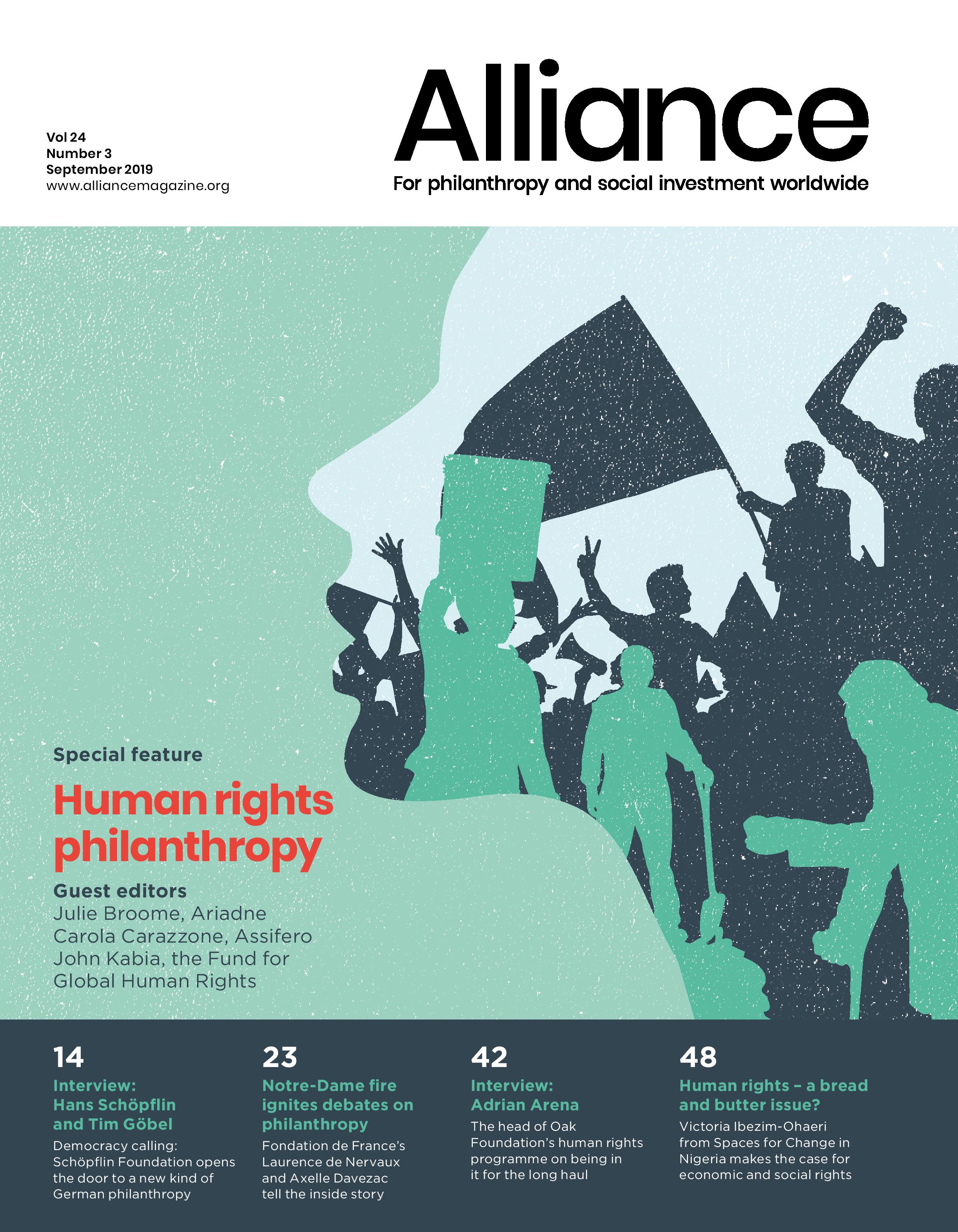
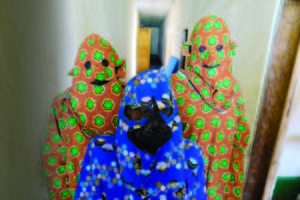
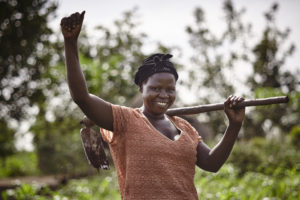



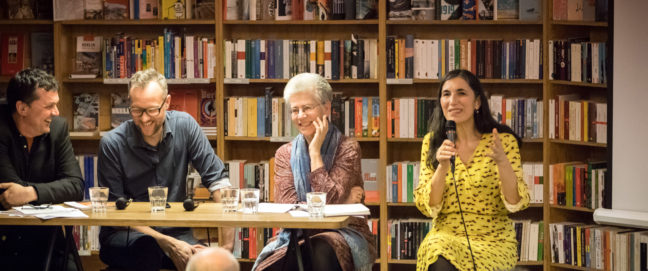

Comments (0)